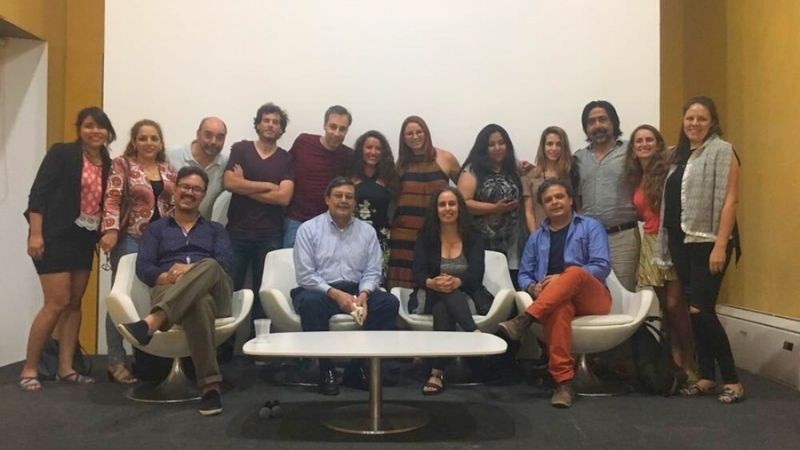Santiago Center Awards Two Fellowships for Course on Investigative Reporting

Twelve journalist from nine Latin American countries participated in the second version of an Investigative Reporting Course organized by Columbia University’s Journalism School and the Colombia-based Fundación Gabriel García Márquez para el Nuevo Periodismo Ibeoramericano (FNPI). This program, conducted in Spanish, took place in Cartagena de Indias on March 5-16 and covered the elements of investigative journalism, from how to conceive an investigative project to the techniques used throughout the reporting process.
For a second year in a row, the Santiago Center awarded fellowships to two journalist based in Chile --Michelle Carrere and Boris Bezama-- in an alliance with Columbia´s Journalism School.
The course, designed for journalists from throughout Latin America who work in any news media platform or teach Journalism in the region’s universities, included discussions with world class teachers providing the instruction. Among them were Columbia Journalism School’s Giannina Segnini, former investigations editor of the newspaper La Nación in Costa Rica and winner of the Recognition for Excellence of the Gabriel García Márquez Award for Journalism at the FNPI in 2013, and Ernest R. Sotomayor, Dean of Students and Director of Latin American Initiatives.
The other instructors were Francisca Skoknic, Director of Universidad Diego Portales’ School of Journalism and former Deputy Director of the Center for investigative Journalism (CIPER) in Chile; Carlos Dada, founder of the digital newspaper El Faro in El Salvador; Juan Forero, South America bureau chief at The Wall Street Journal; and Marina Walker, Deputy Director of The International Consortium of Investigative Journalists.
During the two-week course there were sessions on how to obtain information from global data sources, how to analyze and visualize it, and how to tell digital stories on multiple platforms. Workshops taught skills on how to report on corruption, launch cross border investigations and to collaborate with other media companies. Participating practitioners refined their skills for hunting for international public records, using financial documents, interviewing techniques, structuring of investigative stories, and writing long form narratives. There were discussions around case-studies on the Panama Papers, corruption cases, drug trafficking schemes and money laundering investigations.
Boris Bezama, who teaches investigative reporting at Universidad Santo Tomás in Santiago, explained that this course helped him to update his awareness and skills on the use of new approaches and research instruments, which will be vital to help uncovering corruption in Latin America. “By working together with the journalists from the different countries that attended this course we can gain access to public records and data with the aim of exposing cross-border corruption and carry out investigations that will unmask the relationship between money and politics,” said Bezama.